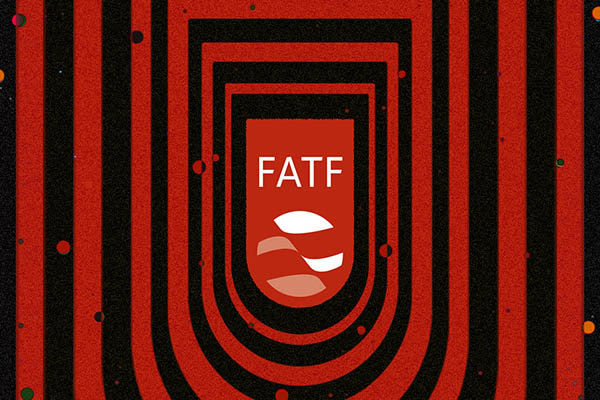
File photo
Paris-based global watchdog says once Islamabad has completed all 27 action points, an ‘on site’ visit will precede any whitelisting
The Paris-based Financial Action Task Force (FATF) on Friday announced that Pakistan would be retained on its “increased monitoring list”—more commonly known as the “grey list.”
Addressing a press conference via video-link after the Oct. 21-23 Plenary Meeting of the global watchdog, FATF President Marcus Pleyer said the forum had decided Pakistan “needs to do more” to fulfill all necessary requirements for a whitelisting.
Noting that Pakistan had fulfilled 21 of the 27 conditions required, Pleyer said that Pakistan was being given until February 2021—when the next Plenary Meeting will occur—to complete the remaining conditions. He said once all 27 action points had been completed, the FATF would conduct an “on-site visit” before agreeing to whitelist the country.
“Our discussions are confidential … the members decided by consensus that Pakistan needs to complete these six items for an onsite visit to be granted,” he said, noting that the remaining points were “serious deficiencies.”
In a statement issued after the Plenary Meeting, the anti-money laundering watchdog “strongly” urged Pakistan to “swiftly complete its full action plan by February 2021.” It said there are four areas that still display “strategic deficiencies”:
- Demonstrating that law enforcement agencies are identifying and investigating the widest range of terror financing activity, which target designated persons and entities, and those who act on the behalf/direction of the designated persons or entities
- Demonstrating that terror financing prosecutions result in effective, proportionate and dissuasive sanctions.
- Demonstrating effective implementation of targeted financial sanctions against all 1,267 and 1,373 designated terrorists and those acting for or on their behalf; preventing the raising and moving of funds including in relation to NPOs (non-profit organizations); identifying and freezing assets (movable and immovable); and prohibiting access to funds and financial services
- Demonstrating enforcement against terror financing sanctions violations, including in relation to NPOs, of administrative and criminal penalties and provincial and federal authorities cooperating on enforcement cases.
“As long as Pakistan can be seen progressing and fulfilling the requirements, it will be given a chance. There are some countries which are not making progress and have been placed on the black-list,” said Pleyer.
Iceland and Mongolia, previously on the FATF’s “black list” have been removed from it after their effective response to required action points.
Government response
Industries Minister Hammad Azhar, in a posting on Twitter, claimed Pakistan had “achieved impressive progress” on its FATF action plan. Noting 21 out of 27 action items “now stand cleared,” he said the remaining 6 were “partially complete.”
Praising the progress of the past year—when Pakistan had only achieved 5 action points—he said discussions were primarily focused on how Pakistan can be facilitated for the evaluation due next year. “I congratulate our federal and provincial teams who have worked day and night even during the pandemic to ensure this turnaround,” he added.
Grey-listing
Pakistan was placed on the FATF’s grey-list in June 2018, which identifies countries being monitored for compliance by the watchdog. The country was due for a review in June, but was granted a reprieve because of the COVID-19 pandemic, when the global watchdog temporarily postponed all mutual evaluations and follow-up deadlines.
The FATF ‘grey-lists’ countries which are not taking measures to combat terror funding and money-laundering. Placement on the grey-list serves as a warning that if action is not taken, it risks blacklisting, which can lead to economic sanctions and bars on loans facilities.
Once a country is placed on the grey-list, it is directly scrutinized by the FATF until measures taken to curb terror financing and money laundering have been achieved. Countries on the blacklist have significant strategic deficiencies in their regimes to counter money-laundering, terrorist financing, and financing of proliferation, according to the FATF.
